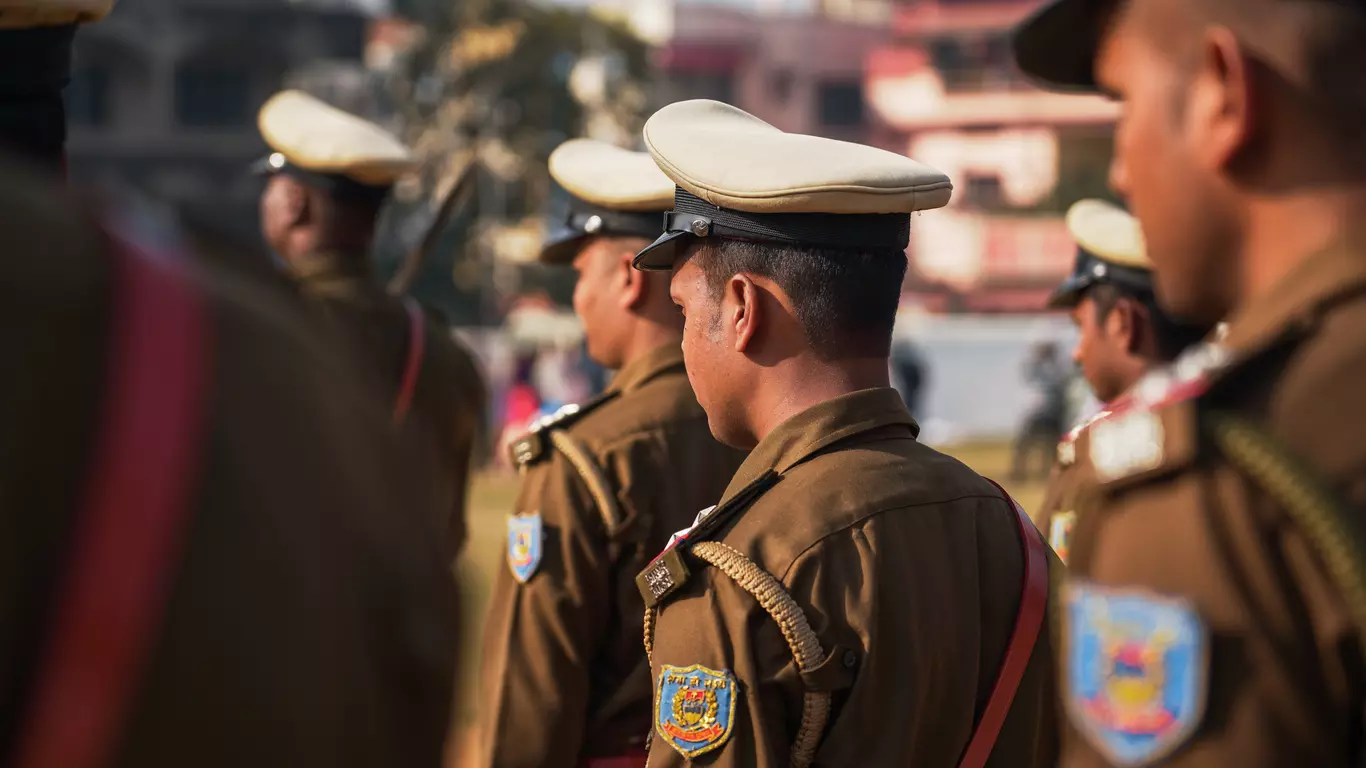
Police turn counsellors in Kota to halt spate of student suicides
The police counsellors meet students, teachers, hostel wardens and even cooks besides talking to the parents of young men and women who seem depressed

Shaken by a spate of suicides, the Rajasthan Police has set up a 'Students Cell' to reach out to students in Kota to detect early signs of stress and depression that may force them to take their own lives.
More than 2.5 lakh students flock to Kota every year to prepare for competitive exams like the Joint Entrance Exam (JEE) for engineering and the National Eligibility-cum-Entrance Test (NEET) to get into medical colleges.
This year has seen the highest number of student suicides -- 22 -- with two killing themselves on August 27. Last year, the figure was 15.
Several reasons force some to resort to the extreme measure. These include packed schedules, heavy competition, constant pressure to do better, burden of parents' expectations as well as homesickness.
Police as counsellors
The police counsellors daily meet students, teachers, hostel wardens and even cooks in the mess besides, if necessary, talking to the parents of young men and women who seem depressed.
"The cell has a control room where personnel are deputed to receive calls on a dedicated Helpline. They attend to problems reported on calls and direct them to counsellors if a student needs professional help,” Kota Assistant Superintendent of Police Chandrasheel Thakur told PTI.
“There are teams that conduct random checks in hostels, interact with students, counsel them and report to their parents if they spot some signs of pressure, stress or depression," Thakur added.
Thakur heads a team of 11 police personnel -- all in their 40s and with teenage children that helps them better understand the challenges faced by the students.
The team starts its day at 9 am and visits at least 15 hostels daily.
Soothing nerves
From familiarising the students with the dedicated cell, sharing the Helpline number with them, counselling them into reaching out for help and also having a plan B ready, the team spends time among students minus their uniform.
"We have reached out to 60,000 students so far. Sometimes the students are reluctant to share with us that they are under pressure from parents. We also reach out to wardens to (know) if they spot any change in the behaviour of students, if he or she is missing classes or skipping meals. If we identify such students, we are able to get them help much before they reach a stage where they take any extreme step," Thakur said.
Assistant Sub-Inspector Sanju Sharma daily visits at least 20 hostels -- both girls and boys -- and speaks to as many students as she can.
“If I find any student in the hostel when he or she should have been in class, I ask them the reason why they are not attending classes. I speak to their parents too at times. If we find some student is depressed, first we try to counsel them ourselves. If we feel the student is very much under stress, we get them counselled by professional psychologists," she added.
While all coaching institutes are mandated to have counsellors, the police officials say that students often do not open up to them due to the fear of their parents or peers finding out.
"We speak to wardens, check their books, conduct inspection whether required infrastructure is in place in hostels and interact with mess workers to be alert if some student is repetitively skipping meals,” added Bhartendra, a police constable who too is part of the “Students Cell”.
"Often students get disturbed because of discomfort caused due to infrastructure or food which leads to homesickness. So, we try to resolve these issues too," he added.
The Kota district administration has asked coaching institutes to stop conducting routine tests for students preparing for NEET and other competitive exams for the next two months following the suicides.
(With agency inputs)
(Suicides can be prevented. For help please call Suicide Prevention Helplines: Neha Suicide Prevention Centre – 044-24640050; Aasara helpline for suicide prevention, emotional support & trauma help — +91-9820466726; Kiran, Mental health rehabilitation — 1800-599-0019, Disha 0471- 2552056, Maithri 0484 2540530, and Sneha’s suicide prevention helpline 044-24640050.)

